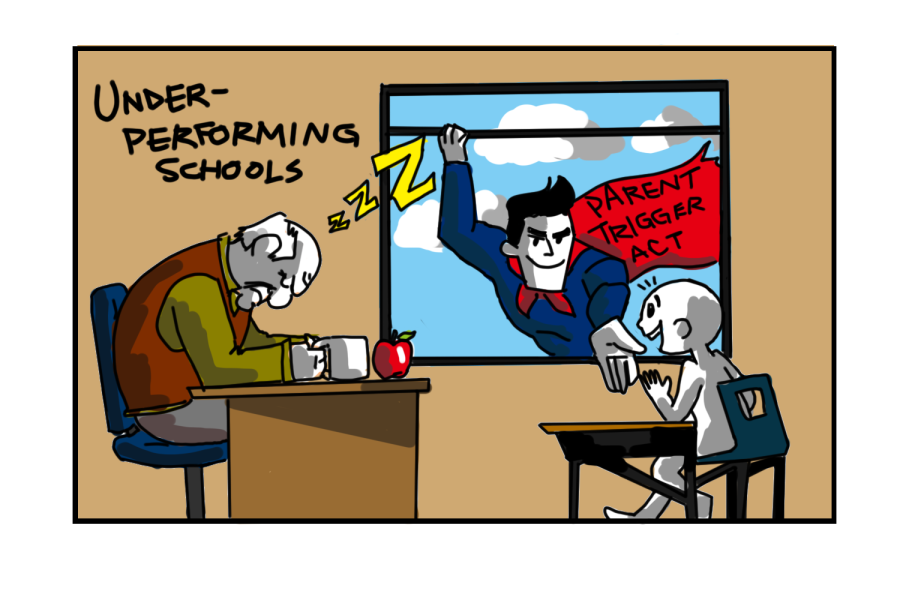Orange County Parents Work Toward School Improvement
This news story written by Namita Prakash placed second Feb. 28 in the OCJEA Writeoff competition.
Parents of children at Palm Lane Elementary School in the Anaheim City School District will be going to court in the next week or two against the school district which rejected the parents’ petition to convert the school into a public, independent charter and refused to give up the petitions for revision as is required by law.
“We know schools are underperforming year after year after year, and parents can’t do anything about it; they’re stuck,” said California former Sen. Gloria Romero, who authored the law.
Parents, acting under the Parent Trigger law within the Parent Empower Act, gathered 67 percent of the school’s parents’ signatures requesting the conversion. The minimum requirement to enact the law is 50 percent.
Romero, speaking to student journalists at the OCJEA news writing competition Feb. 28, described the law as “one out of thousands that gives parents the equal right to make a change to their community.”
Palm Lane has been on California’s chronically underperforming schools list for 10 years. With restrictive education codes in place, Palm Lane parents opted for a change to a charter school to avoid some issues of the public education system, Romero said.
“The teacher pipeline is such a sham and the schools that really need good quality teachers aren’t getting them, Romero said.
Contrarily, educators like Marv Atkins, underscore the law’s capriciousness. They are wary of the power it gives to people not physically involved in the classroom. Educators do not, however, renounce the significance of parent input, Atkins said.
“I believe in parent groups (coming) into a school building and (having) a discussion,” said Atkins, assistant principal at Fullerton Union High School.
Atkins, who has worked in several underperforming schools, worries about the implications the act could have on teachers’ lives.
“What’s next?” he asked repeatedly.
Teachers fear the numerous unknown factors accompanying the law. If parents changed the entire school’s composition, how would they have the knowledge to determine vital details such as the perfect class size? Instead, Atkins advocates an approach he has seen work firsthand at Curtis Middle School and Fontana High School in San Bernardino County.
“The change that came about at Curtis and Fontana came through a collaborative model,” Atkins said.
Atkins believes in parents working with educators to do what is best for students. He reminded everyone which group of people is the most important in this debate—the students.
“As long as we keep students first, everything will turn out all right,” Atkins said.
Despite the educator’s willingness to collaborate with parents in reforming the school, Romero and the Palm Lane parents insist this is not enough.
“There is a difference between involvement and a right to change,” she said.
Romero and the parents are aiming for a stricter system in which teachers are held accountable for their performances on a year-to-year basis.
“If you don’t perform, you can’t rely on seniority,” she explained.







